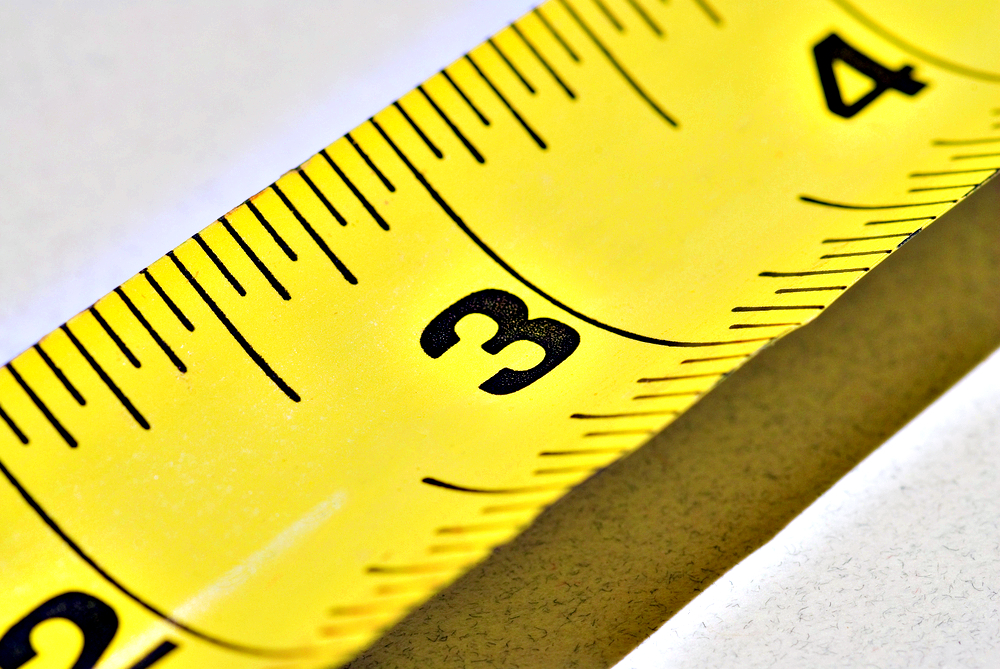
Nexus 10: Three extra inches of BYOD Hell
It’s relentless. Just when my psyche was beginning to recover from the Nexus 7 bombshell, here comes the Nexus 10. A rumored upsized-version of Google’s recently announced reference platform, the Nexus 10 will be to the iPad what the Nexus 7 is to the Kindle: An immediate, existential threat pounding on the gates of Fort Cupertino.
To Apple, the thought of an ultra-cheap (think sub-$300), 10-inch iPad fighter must send chills down CEO Tim Cook’s spine. But to me, the Nexus 10 represents something much worse: Three extra inches of BYOD hell for enterprise IT shops.
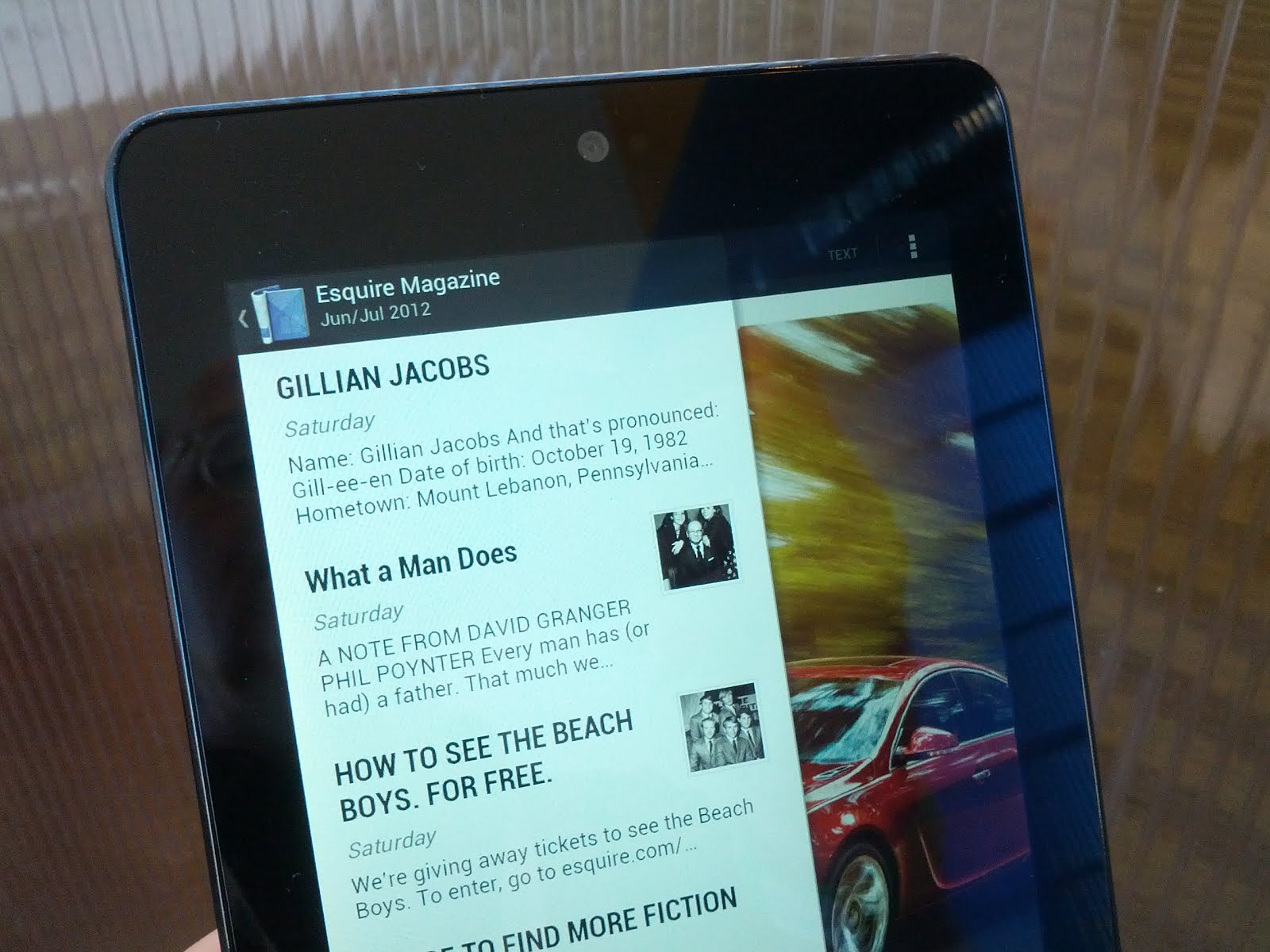
Meet Google Nexus 7, Kindle Killer
I told you so, in April. Contrary to pundits at the time viewing Google's tablet as an iPad competitor, I saw something else: Google isn't gunning for Apple but Amazon. After getting my hands on the tablet this evening, and comparing the experience using my wife's Kindle Fire, there is no doubt. Google will probably save Android from Amazon, but the end cost may be greater gains for iPad.
By just about every measure -- the exception being buying tens of thousands of retail goods -- using Nexus 7 feels like Kindle Fire, only better in every way. Significantly, the experience is different from using Google Nexus smartphones or other Android tablets. That's because Google Play is so visible. I can't say if that's a function of Android 4.1 Jellybean or how Google has set up the tablet. But content pushes to the forefront, like Kindle Fire, and much of it is similar.
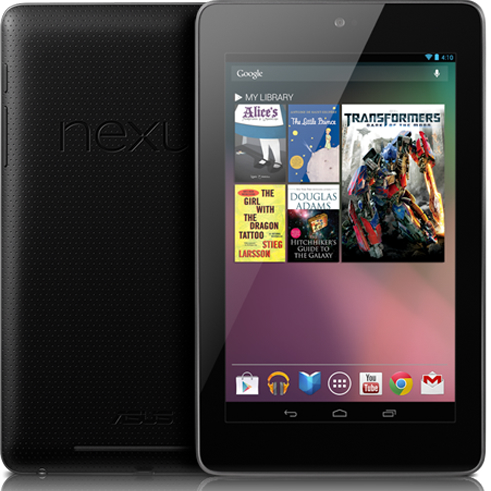
Google Nexus 7: yet another cheap Android tablet (YACAT)
The cat is finally out of the bag. After weeks of speculation surrounding Google’s vaporous "7-inch Kindle killer", the Nexus 7 is now real. And as I suspected, the search giant’s new reference platform is nothing more than another in a long line of cheap, uninspiring Android tablets.
I mean, what is there to differentiate the Nexus 7 from similarly-sized tablets by Samsung or Acer? They all have the same crappy build quality, the same limited output options (no HDMI?) and the same tinny, poorly-placed speakers that have come to define the 7-inch Android tablet category.
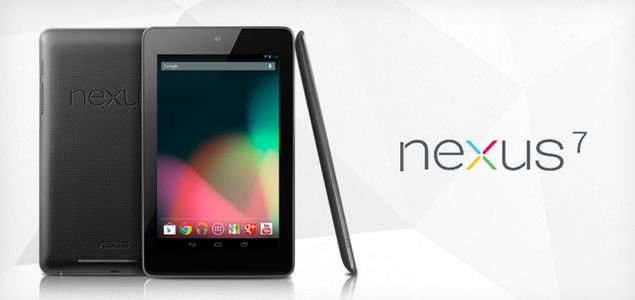
Google's Nexus 7 tablet goes up for sale at $199, ships in July
At Google's I/O 2012 developer convention on Wednesday, the long-rumored Asus tablet sporting the Google Nexus brand was finally revealed. Confirming the rumor from Gizmodo Australia earlier this week, the tablet is known as Nexus 7.
As the rumors had suggested, the $199 device is going to be the first to run Android 4.1 (aka Jellybean), sport a 7-inch, 1280 x 800 display, run on a quad-core 1.3GHz Nvidia Tegra 3 processor with 1GB of RAM and a "12 core" GeForce GPU, be Wi-Fi only, and offer a 1.3 megapixel forward-facing camera, accelerometer, and NFC chip for device-to-device communication. The total weight of the device is just 340 grams.
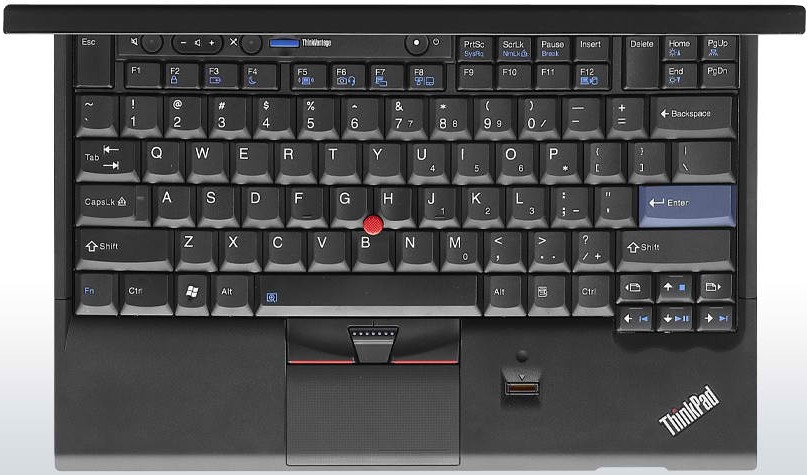
I once was blind but now I see -- or, why I’ll never give up my PC for a tablet and smartphone
Oh man, what a hellish 10 days this has been.
Before we get too far, let me just warn you that when the doorbell rings, this little chat will be over. I don’t care if I’m in mid-sentence. That’s it. Period. End of story.
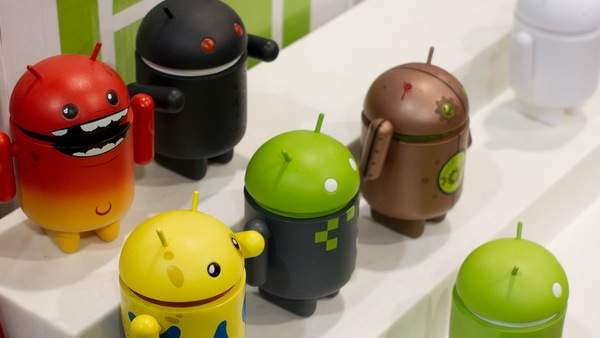
NOW would you buy a Google Nexus tablet?
Google I/O starts tomorrow, and if rumors are right -- and I believe them -- developers get a big peak at the 7-inch Nexus tablet. About a month ago, I asked how much would you pay for one. Now with more details available, I ask if you will buy the Google device.
The Nexus tablet, manufactured by Asus, features a 7-inch IPS LCD display with 1280 x 800 resolution; 1.3 GHz quad-core Tegra 3 processor, 1GB RAM; 1.2-megapixel front-facing camera; near field communications; and Android 4.1 "Jellybean". There are two capacities, 8GB and 16GB, selling for $199 and $249, respectively. This information comes from a leaked training manual that Gizmodo Australia obtained. The big differentiator is price. As I explained in April, "Google isn't trying to save Android tablets but kill Kindle Fire".

Microsoft's road to redemption
Microsoft just put behind it an eventful and positive week, coming off two major announcements on its two major computing platforms -- Windows and Windows Phone: Surface and WP8. Consumer and expert scepticism hobbled much of the excitement, as Microsoft nose dives into paradigm change. Nevertheless, the third week of June 2012 is indicative of a profoundly new direction for Microsoft, characterized by refreshing perspectives and paves a path that leads ultimately in the right direction.
Microsoft is making genuine inroads towards a new strategy that represents a complete paradigm shift from the fundamentals that defined the company and its products over the last couple of decades. The company used to be the antithesis of Apple in practically every sense, selling products based on the abundance of choice as opposed to Apple's strategy of marketing a small hardware lineup. Apple's strategy has always focused on ease of use, simplicity and form; whereas Microsoft, although not neglecting form and aesthetic, put functionality first and foremost and wrapped design around this in the most appealing way possible. The announcements this week represent a fully-committed digression from this strategy from Microsoft.
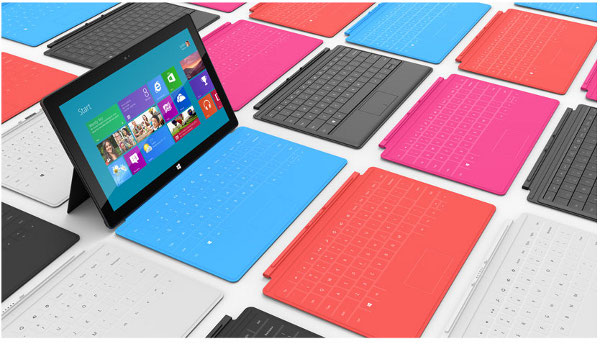
Microsoft’s Surface pricing dilemma is two opportunities waiting to be missed
In an article that appeared earlier today on BetaNews, Robert Cringely talks about how Microsoft can compete with Apple on pricing but -- due to supply and manufacturing issues -- won’t be able to undercut its rival. It’s an interesting observation, and one that’s based on sound thinking.
But Surface is a curious beast. The iPad is, to all intents and purposes, a scaled-up Smartphone. Microsoft’s tablet (or tablets, rather) is a touch-screen PC. It runs Windows 8, and Office, and applications like Photoshop.
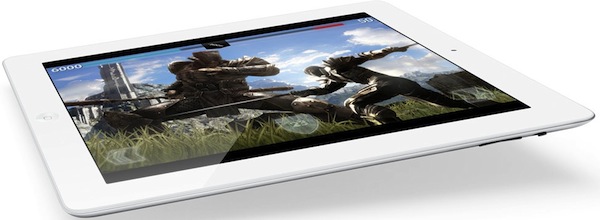
Microsoft and Google won’t have a price advantage with iPad, so they’ll have to actually make a better product
Last week Microsoft kinda-sorta announced its new Surface tablet computer. This week will come a Google-branded tablet. Both are pitted against the mighty iPad. Both companies see opportunity because of what they perceive as a Steve Jobs blind spot. And both companies are introducing tablets under their own brands because they can’t get their OEM’s to do tablets correctly.
For all the speculation about why Microsoft or Google would risk offending hardware OEMs by introducing name branded tablets, the reality is that neither company really had any choice but to make the hardware. In the commodity PC market, no one company is likely to be willing to make the investment necessary to compete with the highly-integrated iPad. Samsung tried, and even then it didn’t pay off for them. Taiwan Inc + Dell just don’t seem to run that way. Furthermore, it is a lot easier to make a product when you control the operating system. You have the experts right there. You don’t have to go through support channels to fix stuff. So ultimately, Microsoft and Google should be able to make much better products than their licensees.
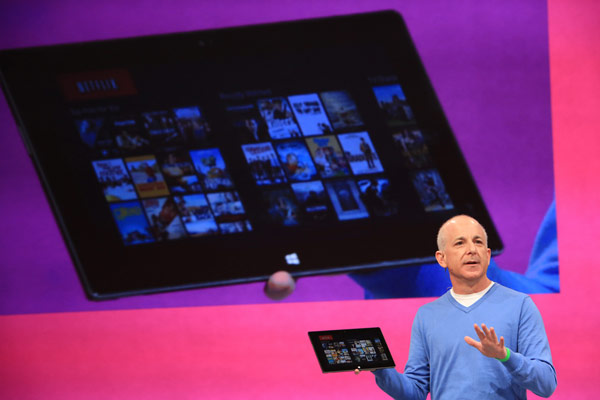
Microsoft Surface can win you over
People can't stop talking about Microsoft Surface. It’s a very hot and disputed topic. Some critics say that the tablets (there are two) will fail, while others are enthusiastic. There's heated discussion about price, too.
For me and many others like me, Surface is the only tablet that can be used for more than common tasks -- certainly not Apple's iPad. Windows is a very powerful platform, and most professionals need it for work. I want to tell you why you need Surface.
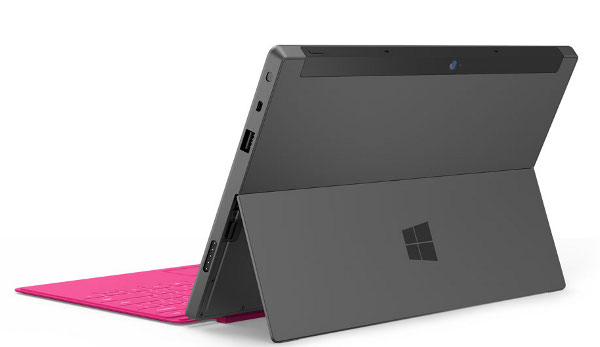
Microsoft Surface is all style and no substance at all
Microsoft’s Hollywood announcement Monday of its two Surface tablet computers was a tactical triumph but had no strategic value for the world’s largest software company because the event left too many questions unanswered. If I were to guess what was on Microsoft CEO Steve Ballmer’s mind it was simply to beat next week’s expected announcement of a Google branded tablet running Android. Microsoft, already playing catch-up to Apple’s iPad, does not want to be seen as following Google, too. So they held an event that was all style and no substance at all.
This is not to say that Microsoft shouldn’t make a tablet and couldn’t make a good one, but this particular event proved almost nothing.
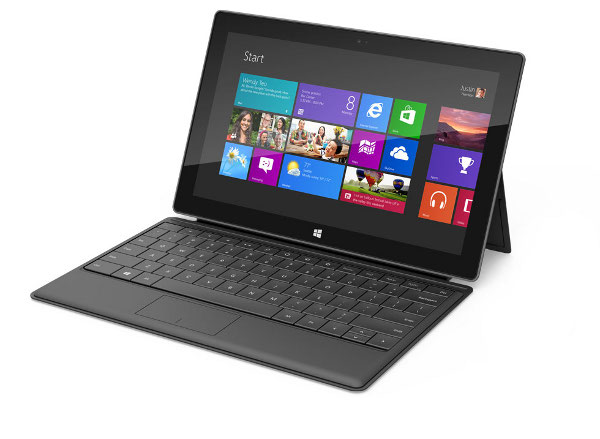
Microsoft Surface gets a positive response from this Windows developer
After seeing the latest information about Microsoft's new Surface tablet computers and also reading Joe Wilcox's latest article about them, I finally get Microsoft's mindset -- and I am impressed. So what does this Windows developer think of Surface? Need a tablet to appreciate what it is all about.
I don't have deep pockets, so I try to use my computers as long as possible, but after hearing about Windows 8, I knew I needed to get a tablet as soon as possible. Something big was afoot! Fortunately Microsoft made is easier for me when the Microsoft Store had an amazing deal on an ExoPC Windows tablet for only $399. I jumped on that deal, and I think it was the right one.
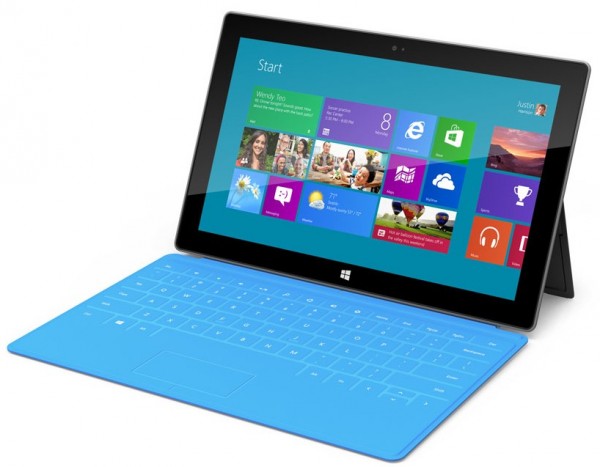
Surface is Project Origami's revenge
Surface isn't just about the future. The tablet is also about the past, and Microsoft bringing to market a vision quashed by its hardware partners. In 2012, Surface is all about Apple and Microsoft securing a fast foothold in the emerging cloud-connected device category. But the tablet also encompasses something sought six years ago: Project Origami.
It's no coincidence that Project Origami's launch was, until yesterday, the last time Microsoft held a super-secretive media event that generated big buzz. Surface and the other share much in common, and not just buzz. Before there was iPad, Microsoft developed Ultra-Mobile PC -- or what Project Origami came to be branded. The idea: To bring to market a sub-$500 touchscreen computer. The software giant sought this product category four years before iPad stormed the media tablet market. Surface is Project Origami's revenge, against Apple and Microsoft's hardware partners.

Microsoft Surface is all about Apple
I dunno if it's branding or magic, but Microsoft's "big-ass" Surface table suddenly is smaller. In a jam-packed media event this evening, the software giant unveiled a 10.6-inch display tablet. Case is magnesium with beveled edges that give a sleek appearance. The tablet weighs as little as 676 grams. That's a helluva lot lighter than the Surface table introduced 5 years ago. That baby measured 30 inches and newer Samsung model is 40 inches. The tablet is pretty compact compared to the table.
So the rumors were true about a Microsoft tablet. But Surface? Not Xbox? It's smart branding that pits Microsoft's tablet against Apple's -- industrial design, announcement timing, Surface branding and more.
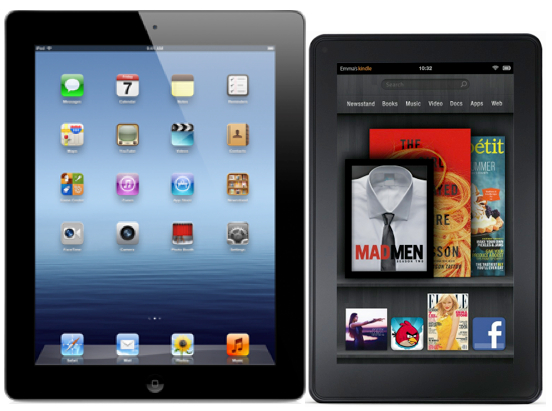
Would you believe Android tablet adoption is even with iPad?
I surely don't. Perhaps even I am too influenced by all the pro-Apple propaganda. But the figures come from a reasonably reliable source, Online Publishers Association, which puts US iPad adoption at 52 percent and Android at 51 percent. Okay, I'll pause so you can wipe off coffee, or whatever else just spit out, from your computer screen.
The numbers don't add up to 100 percent, because some people own more than one type of tablet. Android gains largely come from Kindle Fire, which share is 32 percent -- four times new iPad and one point more than the original. Year over year, overall Android penetration rose from 32 percent, while iPad's fell from 72 percent. Perhaps it's no coincidence Android rose by 19 points and iPad fell by 20.
